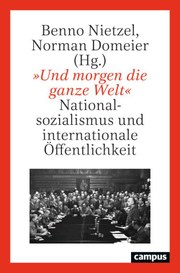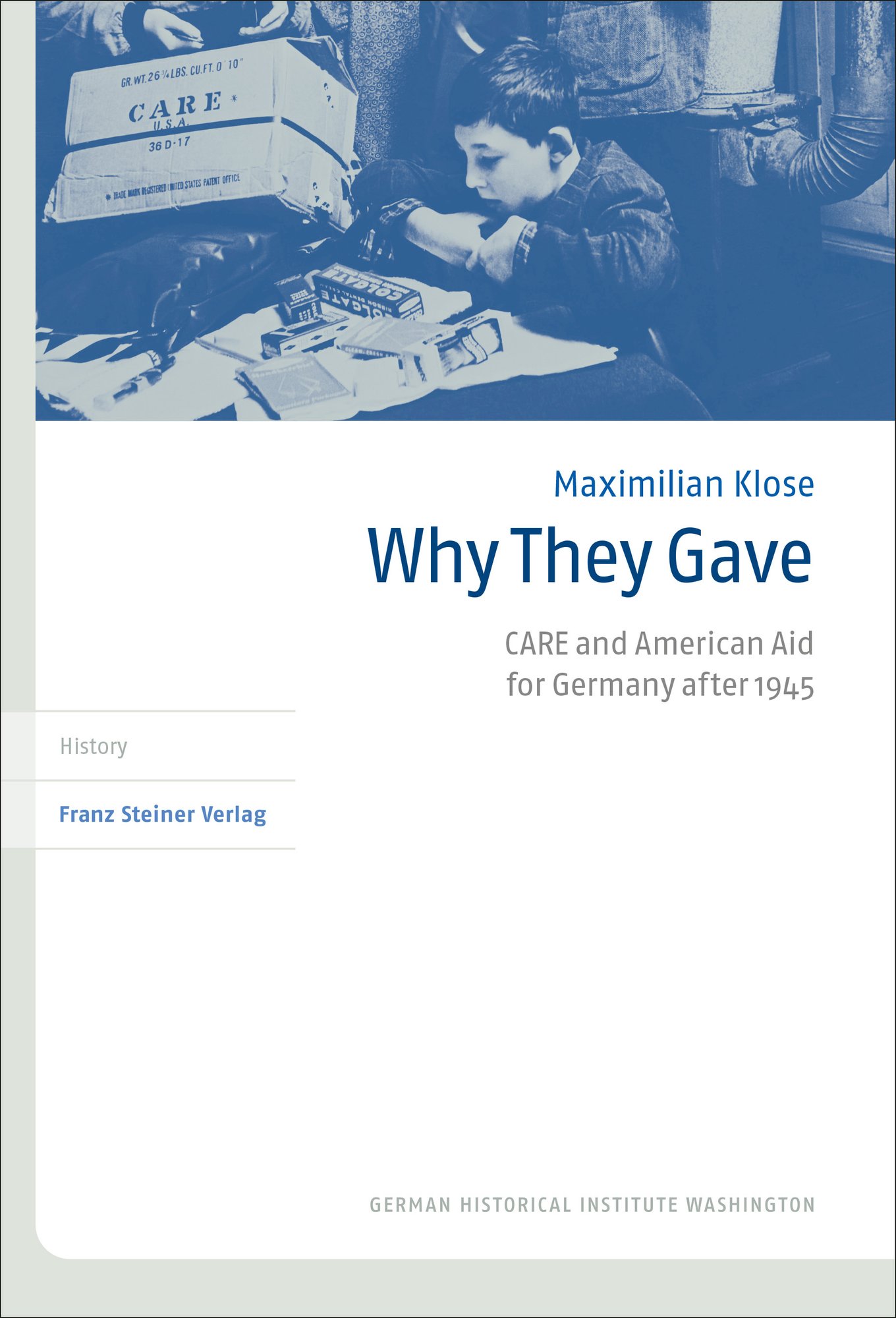Jun.-Prof. Dr. Elisabeth Piller
Elisabeth Piller ist seit November 2020 Juniorprofessorin am Historischen Seminar der Universität Freiburg, wo sie zur Geschichte der Vereinigten Staaten und der transatlantischen Beziehungen forscht und lehrt.
Ihre Forschung beschäftigt sich mit amerikanischer Außenpolitik und dem Verhältnis zwischen den USA und Europa seit dem ausgehenden 19. Jahrhundert. Ihre Doktorarbeit Selling Weimar. German Public Diplomacy and the United States, 1918-1933 (veröffentlicht 2021) untersucht das Werben der Weimarer Republik um die Vereinigten Staaten in der Zwischenkriegszeit und zeigt die USA als eine bestimmende Einflussgröße auf die Neuausrichtung der deutschen und europäischen Außenpolitik. Ihr aktuelles Forschungsprojekt The Good Samaritan of All the World—US Humanitarians, Postwar Europe and the Making of the American Century widmet sich der amerikanischen humanitären Auslandshilfe nach dem Zweiten Weltkrieg und zeichnet den Aufstieg der USA zur (humanitären) Supermacht nach. Dabei werden die großen Hilfsprogramme der Nachkriegszeit nicht nur als Auftakt oder Nebenschauplatz zum Marshallplan begriffen, sondern als Laboratorium zentraler Ordnungsvorstellungen und Modernisierungsparadigmen der amerikanischen Auslandshilfe, die zuerst in Europa erprobt und dann global angewandt wurden.
Elisabeth Piller betreut Bachelor-, Master- und Doktorarbeiten im Bereich der nordamerikanischen und transatlantischen Geschichte.
For an English CV please see here
Wissenschaftlicher Werdegang
2018 Doktor der Philosophie, NTNU, Norwegen
2011 M.A. in Geschichte, Universität Heidelberg („mit Auszeichnung“)
2008 B.A. in Geschichte und Religionswissenschaften, University of Tennessee USA („summa cum laude”)
Positionen
Seit Nov 2020 Juniorprofessorin, Historisches Seminar, Universität Freiburg
2019 – 2020 Postdoktorandin, Universität Oslo, Norwegen
2018 – 2019 Postdoktorandin, University College Dublin, Irland
2017 – 2018 Lehrbeauftrage, amerikanische Geschichte, NTNU, Norwegen
2013 – 2017 Wissenschaftliche Mitarbeiterin, International Geschichte, NTNU, Norwegen
2012 – 2013 Lehrbeauftrage, amerikanische Geschichte, NTNU, Norwegen
2009 – 2011 Wissenschaftliche Mitarbeiterin, The Civil Rights Struggle, African-American GIs,
and Germany (Deutsches Historisches Institut, Washington DC)
Forschungsschwerpunkte
- Europa und die Vereinigten Staaten seit 1776
- Nordamerikanische Geschichte, insb. Religionsgeschichte und Außenpolitik der Vereinigten Staaten
- Kulturgeschichte der Diplomatie und der internationalen Beziehungen (19. u. 20. Jahrhundert)
- Geschichte des modernen Humanitarismus
Aktuelle Forschungsprojekte
- “The Good Samaritan of all the World.” US Humanitarians, Postwar Europe and the Making of the American Century (second book)
- The Blockade in the Era of the Two World Wars, zus. mit Alan Kramer, Samuël Kruizinga und Jonas Scherner (ERC Synergy Grant, 2025-2031)
-
FRIAS-Projektgruppe “Nachkriegszeiten” https://uni-freiburg.de/frias/post-war-periods-plurality-temporality-re-constructions/
- From Surplus to Superpower – How ‘War Junk’ Fueled American Hegemony after 1945
Auszeichnungen (Auswahl)
Transatlantic Studies Association-Cambridge University Press Book Prize, 2022 (für Selling Weimar)
Die Transatlantic Studies Association und Cambridge University Press vergeben jährlich den TSA-CUP book prize für die beste Monographie in den transatlantic studies
Friedrich-Ebert-Preis, 2020 (für die Doktorarbeit)
Die Forschungsstelle Weimarer Republik (Universität Jena) vergibt jährlich den Friedrich-Ebert-Preis für die beste Dissertation oder Habilitation zur Weimarer Republik
Franz Steiner Preis für Transatlantische Geschichte, 2019 (für die Doktorarbeit)
Der Franz Steiner Verlag und das Deutsche Historische Institut in Washington DC (DHI) vergeben alle zwei Jahre den Franz Steiner Preis für Transatlantische Geschichte für ein hervorragendes wissenschaftliches Manuskript auf dem Gebiet der Nordamerikaforschung oder der transatlantischen Beziehungen von der Frühen Neuzeit bis zur Gegenwart
Ifa-Forschungspreis Auswärtige Kulturpolitik, 2018 (für die Doktorarbeit)
Mit dem ifa-Forschungspreis wird jährlich durch das Institut für Auslandsbeziehungen in Stuttgart eine herausragende und die Forschung besonders weiterführende Dissertation ausgezeichnet, die Themen an der Schnittstelle zwischen Kultur und Außenpolitik bearbeitet.
Schriften
MONOGRAFIEN/HERAUSGEBERSCHAFTEN
- Selling Weimar? German Public Diplomacy and the United States, 1918–1933. Stuttgart: Steiner, 2021
Rezensiert in:
h-diplo roundtable XXIII-37: https://hdiplo.org/to/RT23-37
European History Quarterly, https://doi.org/10.1177/02656914211049090p
Sehepunkte, http://www.sehepunkte.de/2021/07/35471.html
Central European History: https://doi.org/10.1017/S0008938922000437
Giornale di Storia costituzionale 44/2 (2022): 339-40.
American Historical Review https://doi.org/10.1093/ahr/rhad007
- The Blockade in the Era of the World Wars, Themenheft, International History Review 46/4 (2024): S. 383-569 (hrsg. mit Alan Kramer, Samuël Kruizinga und Jonas Scherner)
- Imperien. Temporalität, Visualisierungen und post-imperiale Ordnungen. Freiburg: Freiburger Imperienforschung, 2024 (hrsg. mit Ronald G. Asch und Peter Eich)
- Humanitarianism in the Era of the Great War, 1912–1923. Manchester: Manchester University Press, 2023 (hrsg. mit Neville Wylie)
- Cultural Diplomacy and Europe’s Twenty Years’ Crisis, 1919-1939, Themenheft, Contemporary European History 30/2 (2021): 149-317 (hrsg. mit Ben Martin)
AUFSÄTZE IN ZEITSCHRIFTEN (double-blind peer review)
- The Blockade in the Era of the World Wars, in: International History Review 46/4 (2024): S. 383-392, mit Alan Kramer, Samuel Kruizinga und Jonas Scherner.
-
The Blockade and the Making of Modern Food Aid in the Era of the World Wars, in: International History Review 46/4 (2024): S. 551-567.
- A Humanitarian Moment? The U.S. Military in Europe, 1943-1947, in: Modern American History 7/1 (2024): S. 92-97.
-
(In)Gratitude, US Ascendancy and Transatlantic Relations after the Great War, in: Contemporary European History, online first (2023): S. 1-19; doi:10.1017/S096077732300053X
- Prelude to Re-Education - US Internationalists, Students and the German Problem, 1919-1949, in: English Historical Review 138/593 (2023): S. 806-840.
-
Despondence, Dependence and Dignity – On the Dilemmas of Being an Object of International Charity in Western Europe: A Weimar German Case Study, in: European Review of History: Revue européene d’histoire 30/5 (2023): S. 770-790
*nachgedruckt in: Romain Fathi, Melanie Oppenheimer and Paul-André Rosenthal, hrsg., Voluntary Organisations, the Red Cross, and the Features of Humanitarian Reconstruction in Western Europe after the World Wars. Routledge, 2025.
- Beyond Hoover. Rewriting the History of the Commission for Relief in Belgium (CRB) through Female Involvement, in: International History Review 45/1 (2023): S. 202-24.
- The Transatlantic Dynamics of European Cultural Diplomacy: Germany, France and the Battle for U.S. Affections In the 1920s, in: Contemporary European History 30/2 (2021): S. 248-64.
- Cultural Diplomacy and Europe’s Twenty Years’ Crisis, 1919-1939, in: Contemporary European History 30/2 (2021): S. 149-63, mit Benjamin Martin.
- Managing Imponderables. The Rise of U.S. Tourism and the Transformation of German Diplomacy, 1890-1933, Diplomatic History 44/1 (2020): S. 47-75.
- American War Relief, Cultural Mobilization and the Myth of Impartial Humanitarianism, 1914–17, Journal of the Gilded Age and Progressive Era 17/4 (2018): S. 619-35
- To Aid the Fatherland. German-Americans, Transatlantic Relief Work and American Neutrality, 1914–17, Immigrants and Minorities. Historical Studies in Ethnicity, Migration and Diaspora 35/3 (2017): S. 196-215
- German Child Distress, American Humanitarian Aid and Revisionist Politics, 1918–1924, Journal of Contemporary History 51/3 (2016): S. 453-486
AUFSÄTZE IN SAMMELBÄNDEN / WEITERE WISSENSCHAFTLICHE VERÖFFENTLICHUNGEN
-
“To Watch a Revolution at First Hand.” U.S. Exchange Students in the Third Reich, 1933–1934, in: Benno Nietzel und Norman Domeier (hrsg.), ‚Und morgen die ganze Welt‘ – Nationalsozialismus und internationale Öffentlichkeit. Frankfurt: Campus, 2025, S. 37-59.
- Imperium wider Willen? – Visuelle Darstellungen der USA als Kolonialmacht um 1900, in: Ronald Asch, Peter Eich, Elisabeth Piller (hrsg.), Imperien – Temporalität, Visualisierungen und post-imperiale Ordnungen. Freiburg: Freiburger Imperienforschung, 2024, S. 85-119.
- Abandoning Poland. Or How to Write the History of Great War Humanitarianism as a History of Failure, in: Elisabeth Piller und Neville Wylie (Hrsg.) Humanitarianism and the Greater War, 1912–23. Manchester: Manchester University Press, 2023, S. 187-209.
- Humanitarianism and the Greater War, in: Elisabeth Piller and Neville Wylie (Hrsg.), Humanitarianism and the Greater War, 1914–24. Manchester: Manchester University Press, 2023, S. 1-28 (zus. mit Neville Wylie)
- Die Rückkehr der Imperien? Putins Krieg und seine globalen Implikationen, in: Journal of Modern European History 20/2 (2022), S. 148-160 (zus. mit Dietmar Neutatz et al.)
- Student Exchange: French and German Competition for US Students in the 1920s, in: Cambridge University Press Blog, http://ow.ly/z4Va50ELMNT (2021)
- A Tumultuous Relationship: Nicholas Murray Butler and Germany in the Era of the Two World Wars, in: Bulletin of the German Historical Institute 67 (2020), S. 71-100.
- Eine Diplomatie des Mitleids? Die deutsche Kindernot, das amerikanische Hilfswerk und die Hoffnungen und Nöte revisionistischer Außenpolitik in den Anfangsjahren der Weimarer Republik, in: Andreas Braune und Michael Dreyer (Hrsg.), Weimar und Globaler Politischer Wandel (Stuttgart: Steiner, 2020): 47-78
- European Student Relief, Humanitarianism, and Post-World War I Reconciliation, in: Fabian Klose, Marc Palen, Johannes Paulmann und Andrew Thompson (Hrsg.), Online Atlas on the History of Humanitarianism and Human Rights, urn:nbn:de:0159-2019042427 (Mai 2019)
- Eradicating Misunderstanding? The Institute of International Education, Student Exchanges & Transatlantic Relations in the 1920s, Rockefeller Archive Research Report, Sleepy Hollow, NY (Nov. 2018) http://rockarch.issuelab.org/resources/33683/33683.pdf
- mit Peter Gatrell, Rebecca Gill und Branden Little, Discussion: Humanitarianism, in: Ute Daniel et al. (Hrsg.), 1914-1918-online. International Encyclopedia of the First World War, (Nov. 2017) DOI: 10.15463/ie1418.11168
- ’Can the Science of the World Allow This?’ – German Academic Distress, Foreign Aid and Cultural Demobilization, 1919–1924, in: Tomás Irish und Marie-Eve Chagnon (Hrsg.), The Academic World in the Era of the Great War. London: Palgrave Macmillan, 2017, 189-211
- East Germany: Solidarity with Red Prague, in: Philipp Gassert und Martin Klimke (Hrsg.),1968: Memories and Legacies of a Global Revolt. German Historical Institute Supplement 6, 2009, 159-161 (zus. mit Philipp Gassert)
REZENSIONEN ZU
- Emily Levine, Allies and Rivals. German-American Exchange and the Rise of the Modern Research University (Chicago: Chicago University Press, 2021), h-diplo roundtable (im Erscheinen)
- Mary Elisabeth Cox, Hunger in War & Peace. Women and Children in Germany, 1914-1924. Oxford: Oxford University Press, 2019 (h-diplo review essay 305, Januar 2021)
- Charlotte Lerg, Universitätsdiplomatie. Wissenschaft und Prestige in den transatlantischen Beziehungen, 1890-1920. Göttingen: Vandenhoeck & Ruprecht, 2019 (Connections. A Journal for Historians and Area Specialists und hsozkult, Juli 2020)
- J. Charles Schenking, Giving Most and Giving Differently: Humanitarianism as Diplomacy Following Japan’s 1923 Earthquake, und Guy Aiken, Feeding Germany: American Quakers in the Weimar Republic, Diplomatic History, September 2019 (h-diplo, article review 938, März 2020)
- Martin Wroblewski, Moralische Eroberungen als Instrumente der Diplomatie. Die Informations– und Pressepolitik des Auswärtigen Amts 1902–1914. Göttingen: V & R unipress, 2016. Diplomatica. A Journal of Diplomacy and Society 1 (April 2019): 133-135
- Chad Fulwider, German Propaganda and U.S. Neutrality in World War I. Columbia: University of Missouri Press, 2016. Journal of the Gilded Age & Progressive Era 16/3 (July 2017): 381-82.









